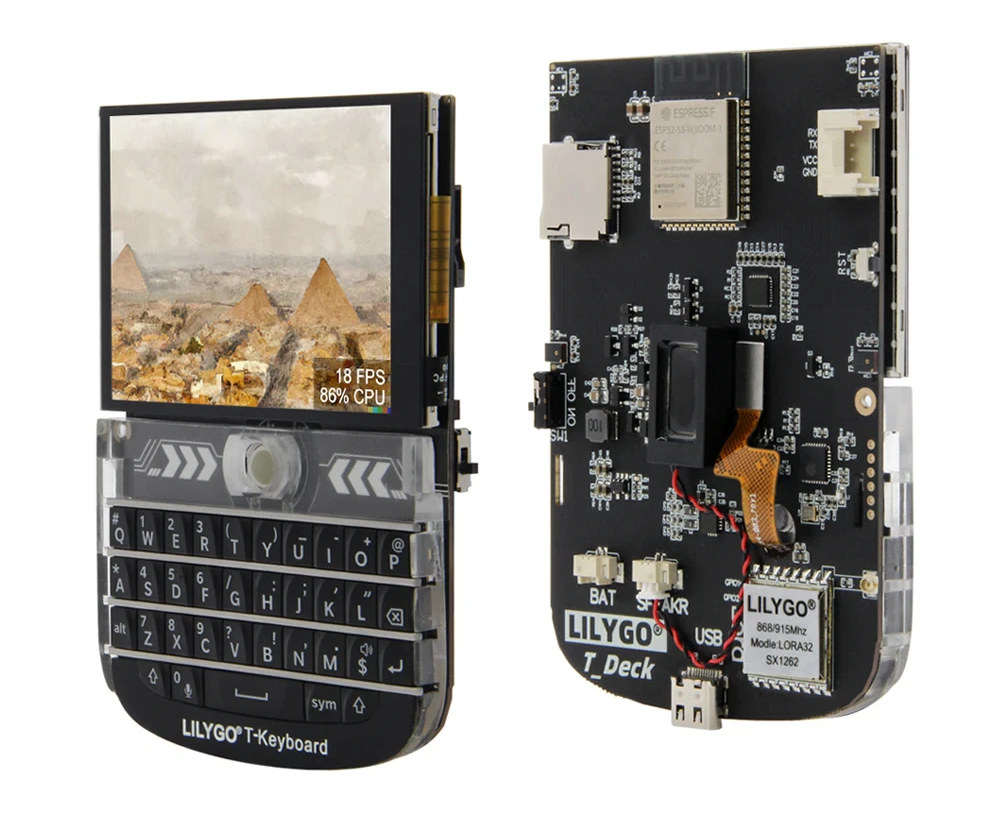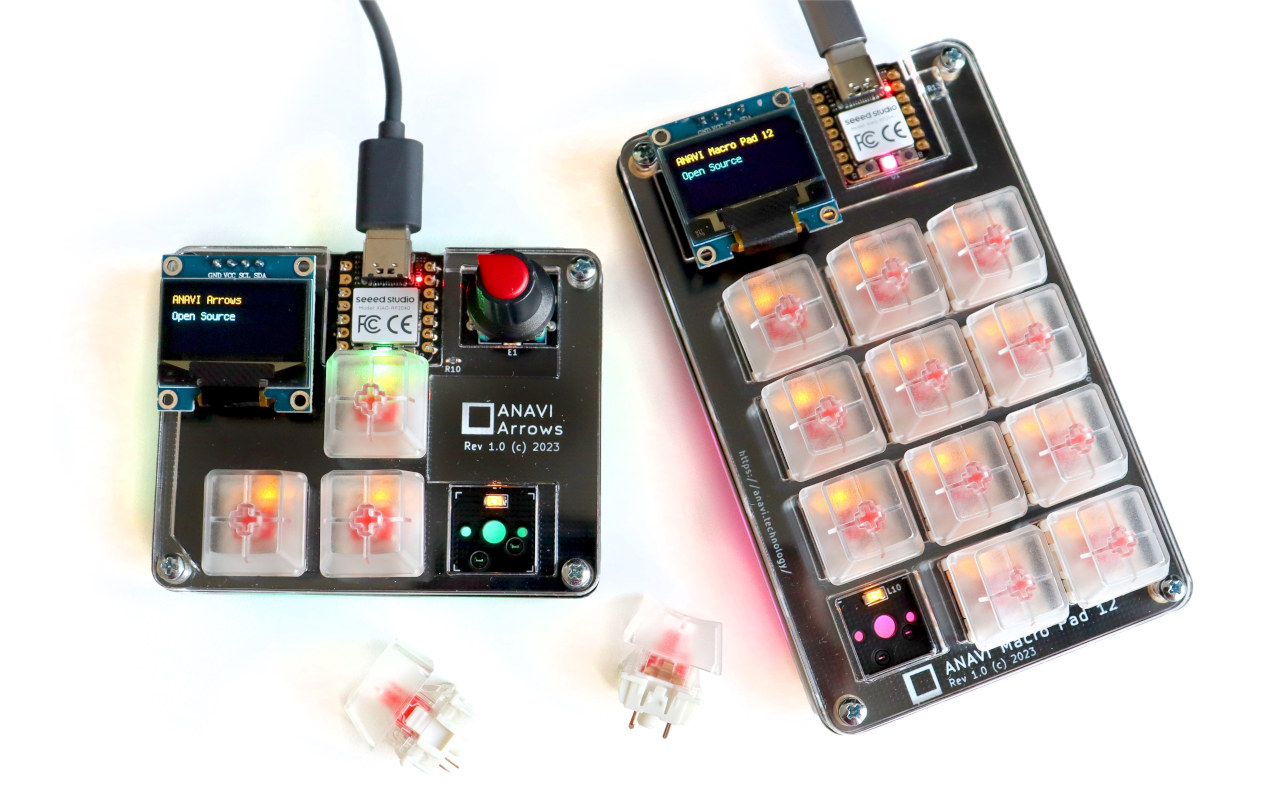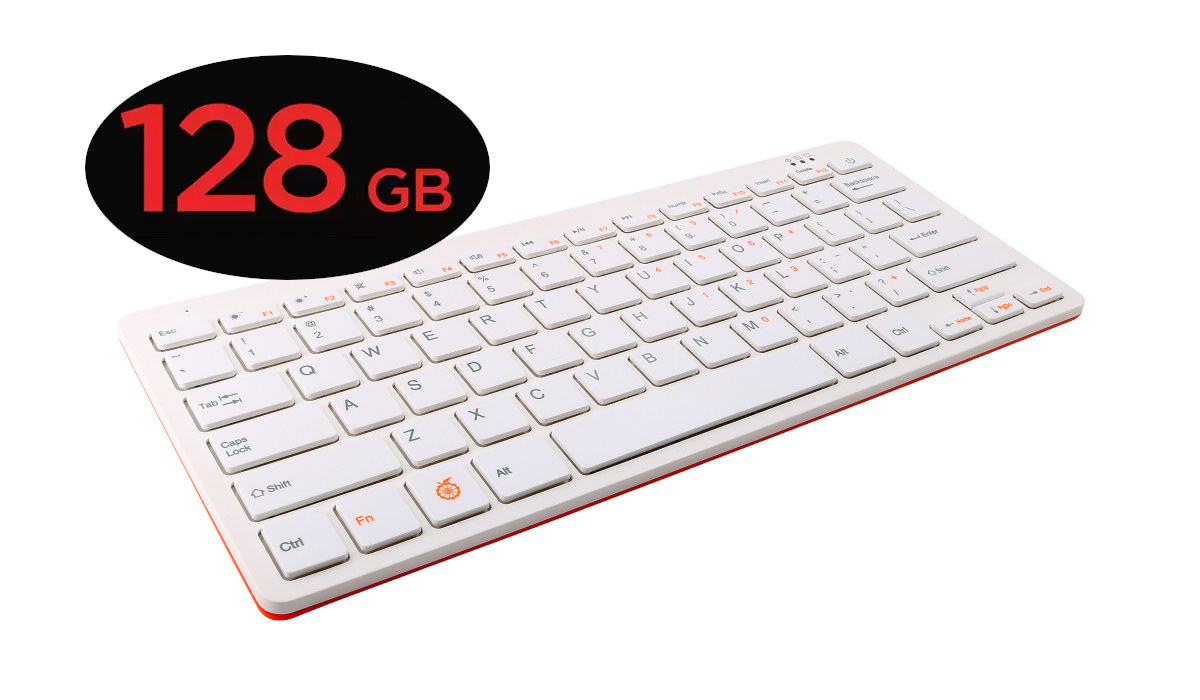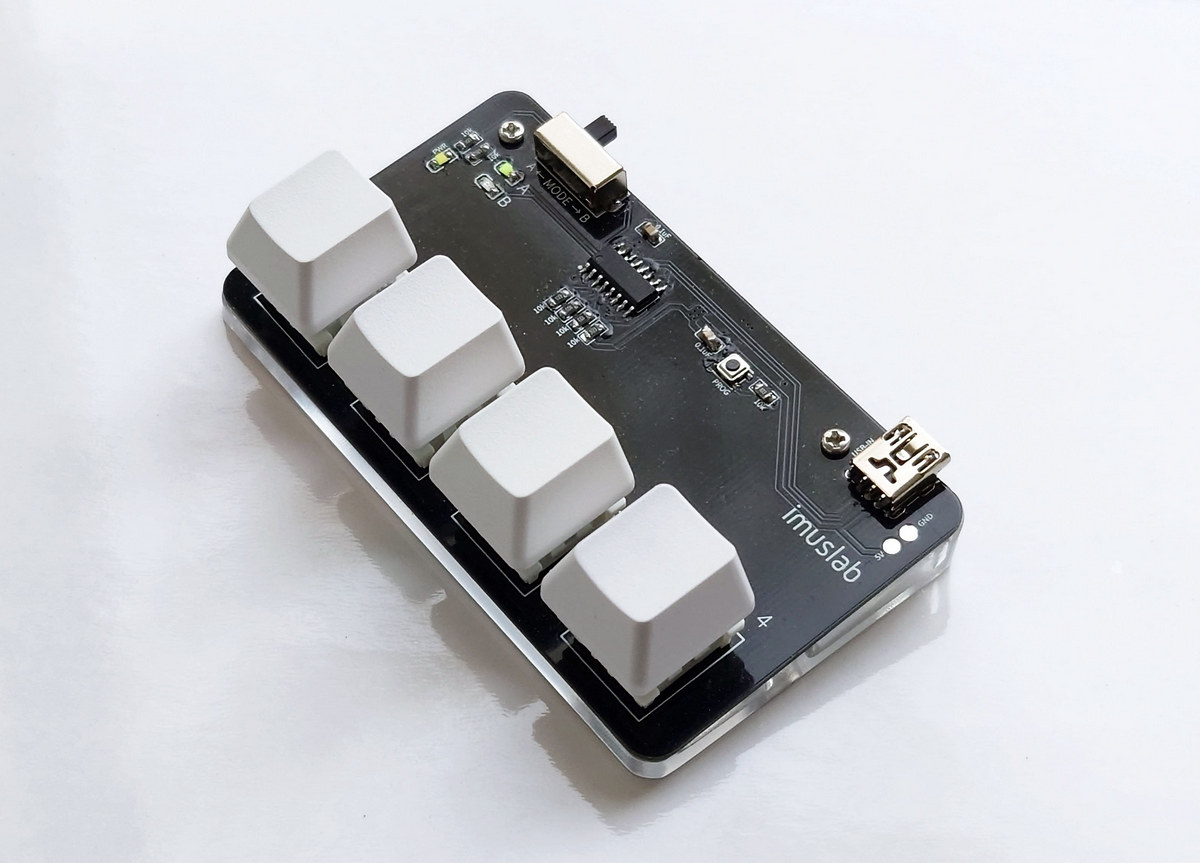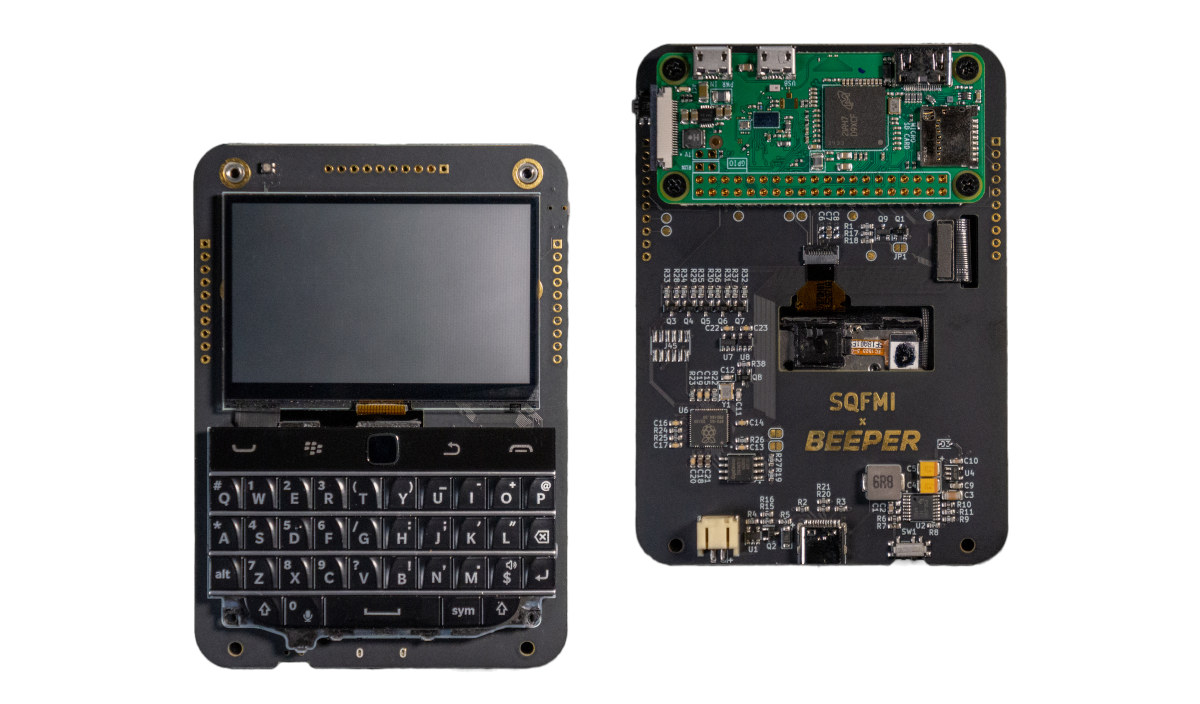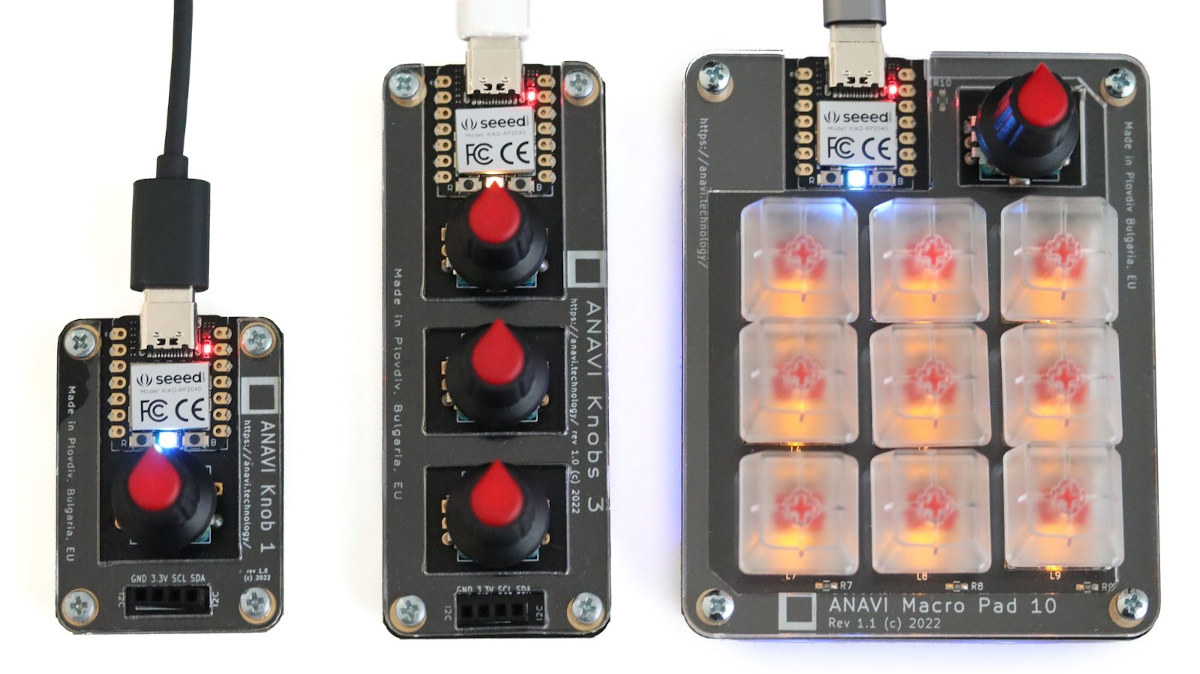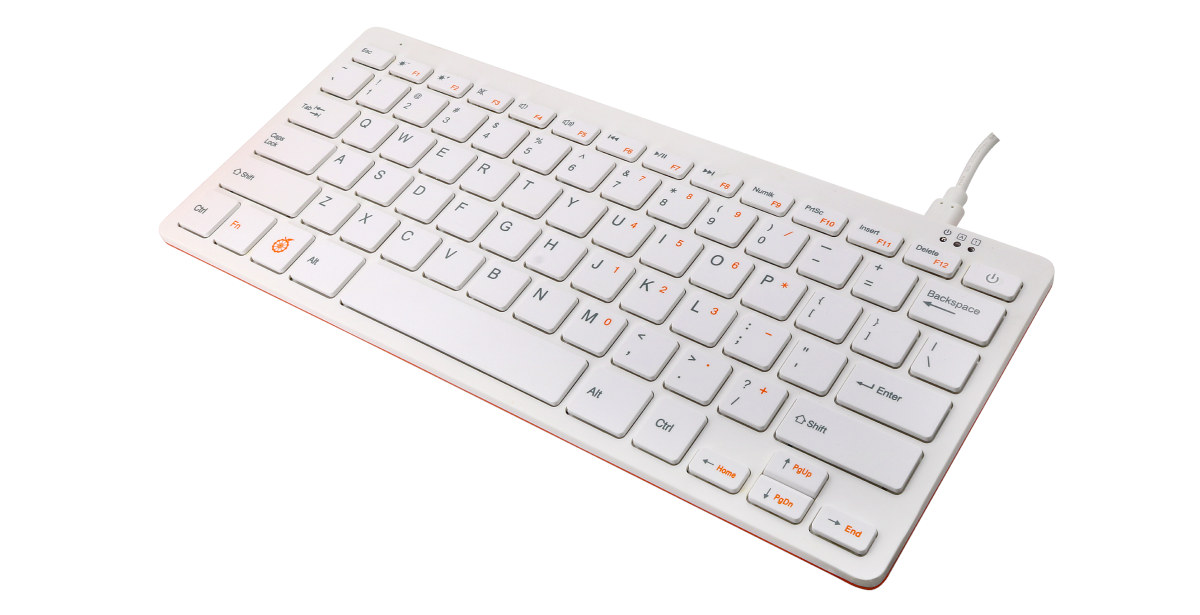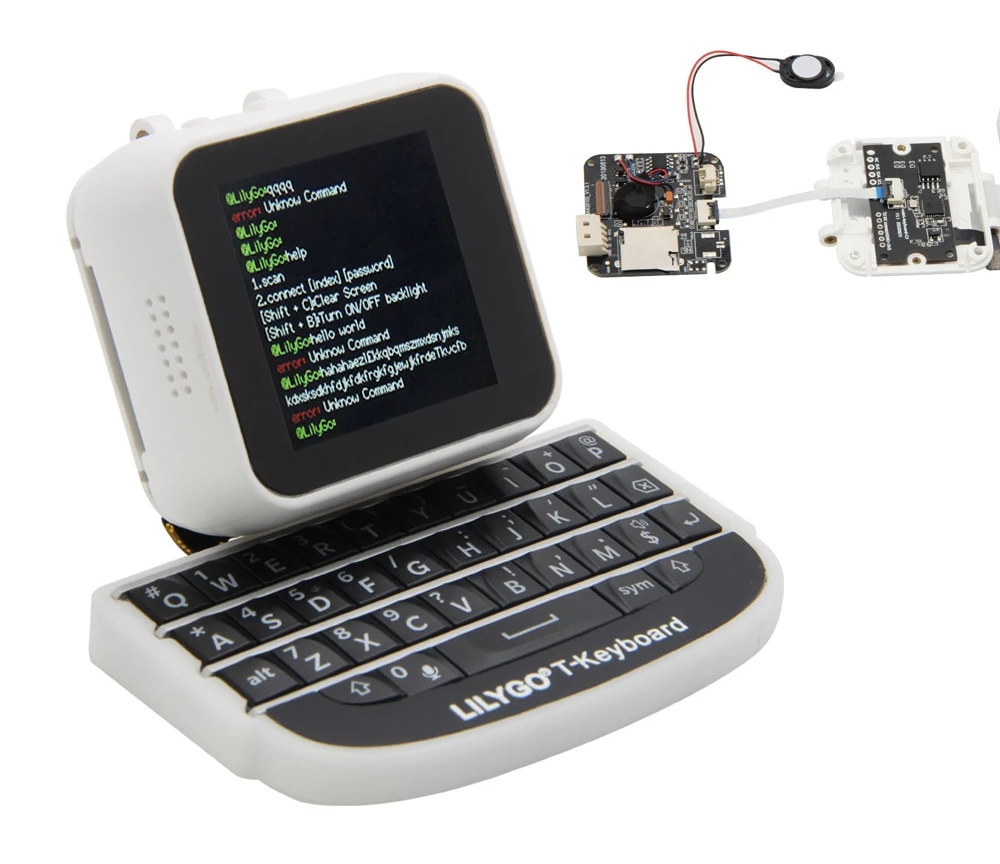LILYGO T-Deck is a development kit with an ESP32-S3 WiFi and BLE module, a 2.8-inch display with touchscreen support, a Blackberry-like keyboard based on ESP32-S3, and optional LoRaWAN connectivity through an SX1262 LoRa module. It looks ideal for text-based messaging, but the devkit also includes two microphones and a speaker so audio communication must be possible. Other features include a MicroSD card slot, a Grove connector (UART) for expansion, and support for a LiPo battery with USB charging. LILYGO T-Deck specifications: ESP32-S3-WROOM-1 wireless module SoC – ESP32-S3FN16R8 dual-core Tensilica LX7 microcontroller @ up to 240 MHz with 2.4 GHz 802.11n WiFi 4 and Bluetooth 5.0 LE connectivity Memory – 8MB PSRAM Storage – 16MB SPI flash PCB antenna Storage – MicroSD card slot Display – 2.8-inch IPS display with 320×240 resolution; ST7789 SPI display controller Audio – Built-in speaker using MAX98357A amplifier, 2x MEMS microphones Wireless 2.4 GHz 802.11n WiFi […]
ANAVI launches CircuitPython-programmable Macro Pad 12 & Arrows mechanical keyboards (Crowdfunding)
ANAVI Technology has launched two more open-source hardware mechanical keyboards based on the Raspberry Pi RP2040 microcontroller, equipped with an OLED display, and programmable with CircuitPython: the ANAVI Macro Pad 12 with 12 keys and the ANAVI Arrows with four keys and a rotatory encoder. The new mechanical keyboards follow ANAVI Macro Pad 10 & Knobs input devices equipped with the same Seeed Studio XIAO RP2040 MCU module running the KMK firmware written with CircuitPython, but with different form factors and features. ANAVI Macro Pad 12 specifications: MCU module – Seeed Studio XIAO RP2040 with Raspberry Pi RP2040 dual-core Cortex-M0+ microcontroller @ up to 133 Mhz with 264KB SRAM, 2MB SPI flash, USB Type-C port Keys – 12x Gateron red, linear, non-clicky mechanical switches and transparent keycaps with yellow LED backlighting Display – OLED display connected to I2C slot (can be replaced with another I2C module) Host interface – USB […]
Orange Pi 800 Keyboard PC gets 128GB flash storage
The Orange Pi 800 keyboard PC, launched as an alternative to the Raspberry Pi 400 last year with a Rockchip RK3399 hexa-core Cortex-A72/A53 processor and 4GB RAM, has gotten an upgrade to 128GB of eMMC flash instead of just 64GB. The keyboard PC still comes with HDMI 2.0 and VGA video outputs, built-in speakers and microphone, Gigabit Ethernet and WiFi 5 connectivity, a few USB ports, and a 78-key QWERTY keyboard, plus a 26-GPIO connector accessible without opening the device. Orange Pi 800 specifications: SoC – Rockchip RK3399 hexa-core big.LITTLE processor with 2x Arm Cortex-A72 cores up to 1.8GHz, 4x Arm Cortex-A53 cores up to 1.4GHz, and an Arm Mali-T860MP4 GPU System Memory – 4GB LPDDR4 Storage – 128GB eMMC flash, microSD card slot Video Output HDMI 2.0 port up to 4Kp60 VGA port up to Full HD resolution Audio 3.5mm audio (headphone+mic) jack Integrated speaker(s) and microphone Digital […]
$10 Arduino-programmable WCH CH552 macro keyboard is configurable from a web browser
The 4xMacropad is a low-cost, open-source hardware 4-key mechanical macro keyboard based on WCH CH552G 8051-compatible USB microcontroller and whose keys can easily be configured from a web browser generating an Arduino sketch. The CH55x family has been around for several years, and we first wrote about the sub-$2 CH551 Mini development board over 5 years ago, but CH552 variants are also found in more recent hardware such as the Turing Screen Screen information display and another rotary encoder shield with two mechanical keys. The 4xMacropad macro keyboard is another CH522 design, but it’s open-source. 4xMacroPad specifications: MCU – WCH CH552G 8051-compatible microcontroller @ 24 MHz with 16KB flash, 1.25KB SRAM USB – 1x mini USB port for power User input – 4x mechanical key switches with keypads Misc – Power LED, Mode switch (A or B), user button Power Supply – 5V via mini USB port The EasyEDA files, […]
BeepBerry handheld Linux computer drives 2.7-inch display with Raspberry Pi Zero W
Good news! The PocketCHIP handheld Linux computer is back! OK, not quite but that’s what the Raspberry Pi Zero-powered BeepBerry reminds me of with a Blackberry-like keyboard, a small 2.7-inch display, and a 2,000mAh LiPo battery for power. The BeepBerry is another open-source hardware design from SQFMI, who previously did the Watchy ESP32 E-Ink smartwatch, that runs Raspberry Pi OS Lite on the Raspberry Pi Zero/Zero W, and also includes a Raspberry Pi RP2040 to handle the keyboard and peripherals. BeepBerry specifications: SBC – Raspberry Pi Zero board with a Broadcom BCM2835 ARM11 processor @ 700 MHz, VideoCore IV GPU, or Raspberry Pi Zero W with WiFi and Bluetooth Storage – MicroSD card slot Display – Ultra-low power high contrast 2.7-inch Sharp Memory LCD with 400 x 200 resolution User input – QWERTY tactile keyboard w/ backlight and touchpad based on Solder Party BB Q20 Keyboard USB – USB-C programming […]
ANAVI Macro Pad 10 & Knobs input devices run KMK firmware on Raspberry Pi RP2040 (Crowdfunding)
ANAVI Macro Pad 10, Knobs 3, and Knob 1 are open-source hardware input devices based on the Raspberry Pi RP2040-powered Xiao RP2040 mini module, and equipped with mechanical keys and/or rotary encoders Leon Anavi has some experience under his belt with the earlier Macro Pad 2 and Macro Pad 8 open-source keypads with mechanical keys running QMK open-source firmware on a Microchip 8-bit microcontroller. The new models switch the MCU to the Raspberry Pi RP2040 and to KMK open-source firmware written in CircuitPython. ANAVI Macro Pad 10 specifications: MCU module – Seeed Studio XIAO RP2040 with Raspberry Pi RP2040 dual-core Cortex-M0+ microcontroller @ up to 133 Mhz with 264KB SRAM, 2MB SPI flash, USB Type-C port Inputs – Rotary encoder with clickable switch and nine hot-swappable Cherry MX-style switches Keys – 9x Gateron red, linear, non-clicky mechanical switches and transparent keycaps with yellow LED backlighting Host interface – USB Type-C […]
Orange Pi 800 Keyboard PC – A Raspberry Pi 400 alternative powered by Rockchip RK3399
There’s now a Raspberry Pi 400 alternative with the Orange Pi 800 Keyboard PC that offers a very similar design, but it is powered by a Rockchip RK3399 hexa-core Cortex-A72/A53 processor. Like the Raspberry Pi model, the Orange Pi 800 comes with 4GB RAM, Gigabit Ethernet, dual-band WiFi 5 and Bluetooth 5.0, two USB 3.0 ports, and one USB 2.0 port, but it also adds 64GB on-board flash storage and features one full-size HDMI port capable of 4Kp60 resolution plus a VGA port, instead of two micro HDMI ports. Orange Pi 800 specifications: SoC – Rockchip RK3399 hexa-core big.LITTLE processor with 2x Arm Cortex-A72 cores up to 1.8GHz, 4x Arm Cortex-A53 cores up to 1.4GHz, and an Arm Mali-T860MP4 GPU System Memory – 4GB LPDDR4 Storage – 64GB eMMC flash, microSD card slot Video Output HDMI 2.0 port up to 4Kp60 VGA port up to Full HD resolution Audio 3.5mm […]
T-Watch-Keyboard-C3 with ESP32 “watch”, ESP32-C3 keyboard looks like a miniature PC replica
T-Watch-Keyboard-C3 is a device that looks like a miniature PC replica comprised of an ESP32-C3 powered keyboard, and the TTGO T-Watch ESP32 programmable device with a 1.54-inch touchscreen display. The LilyGo TTGO T-Watch ESP32 programmable touchscreen display has been around for a while, and the company used to provide an accessory keyboard based on Microchip ATSAM20 Cortex-M0+ microcontroller that has now been replaced with ESP32-C3 WiFi and Bluetooth RISC-V microcontroller to create the T-Watch-Keyboard-C3 devices pictured below. T-Watch-Keyboard-C3 specifications: TTGO T-Watch MCU – ESP32-D0WDQ6 dual-core microcontroller @ 240 MHz with WiFi 4 and Bluetooth 4.x with 520KB SRAM Memory – 8MB PSRAM Storage – 16MB QSPI flash Display – 1.54-inch LCD screen USB – 1x USB Type-C port for power and programming via CP2104 USB to TTL chip Sensor – 3-axis accelerometer Misc – Power button, RTC Dimensions – 40 x 38 x 20 mm Weight – 43.19 grams […]


